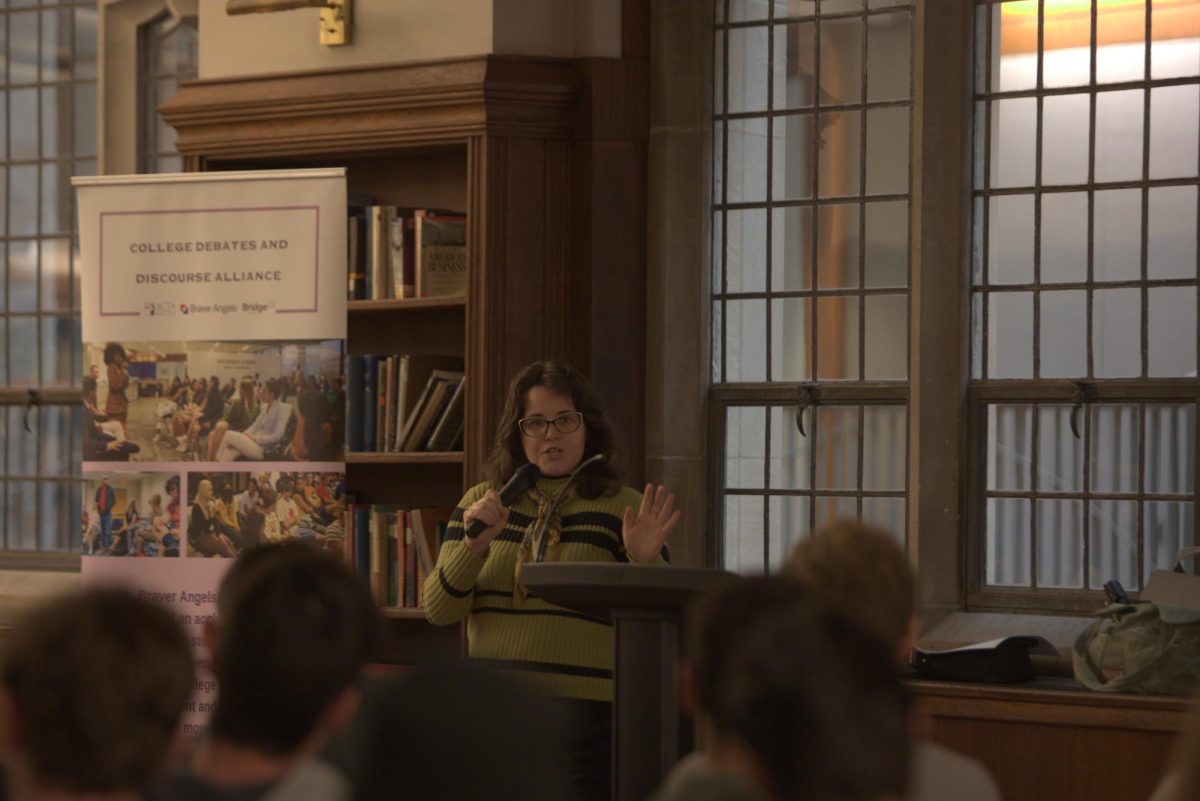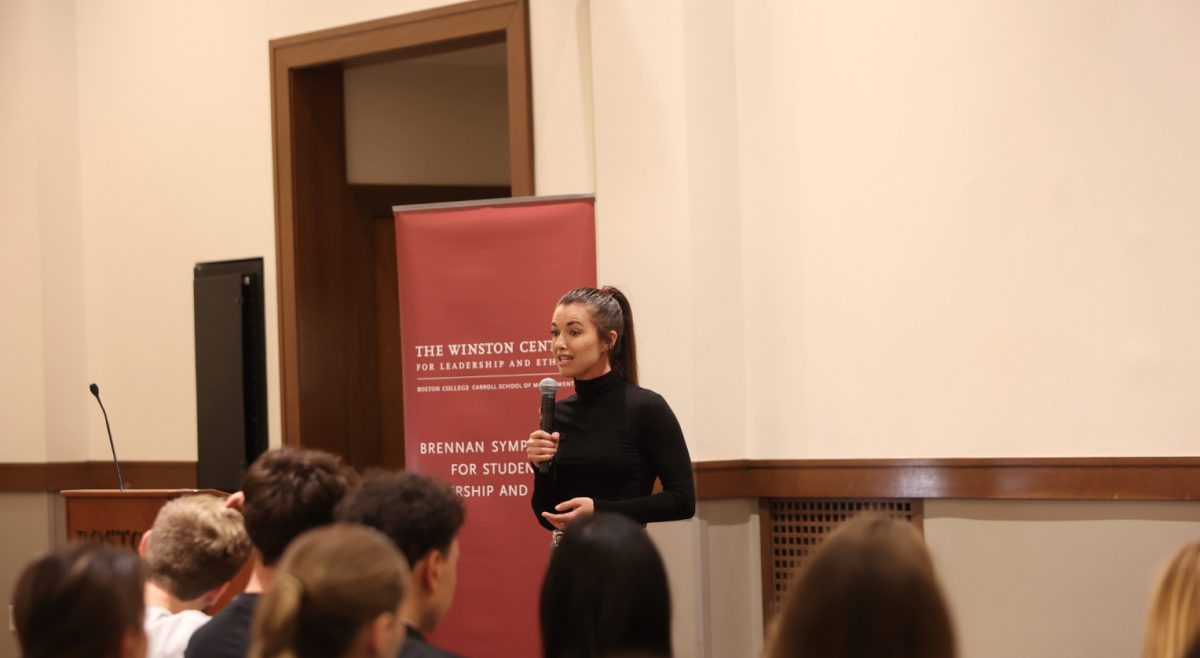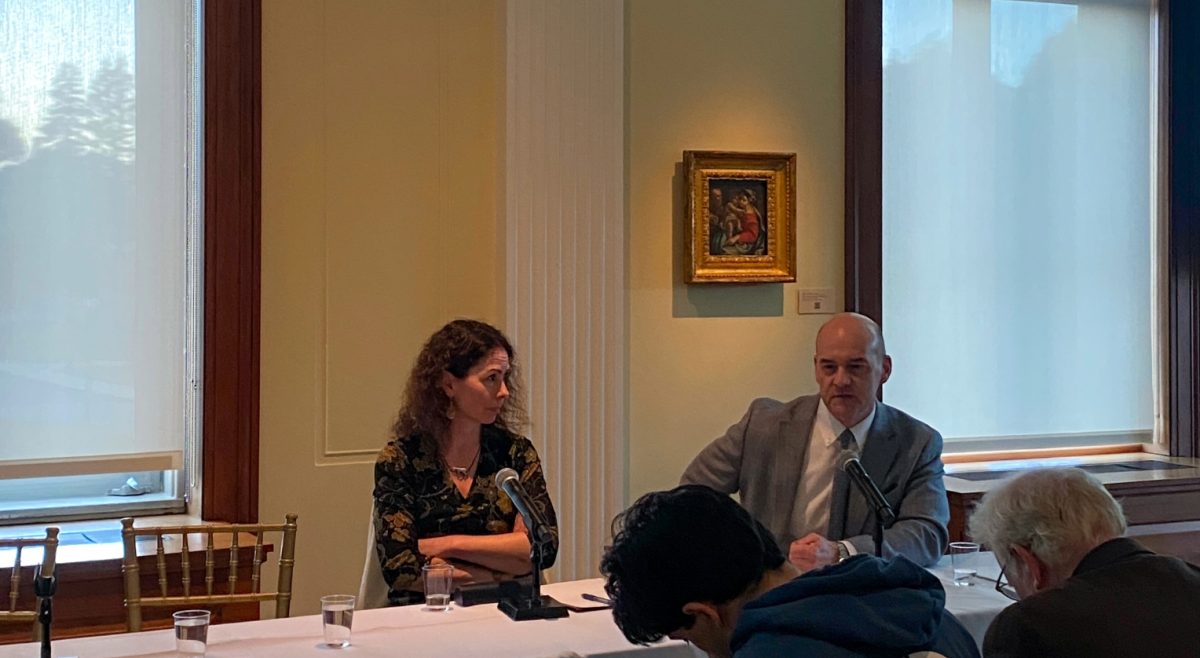The computer science department will begin processing major and minor applications this week after pausing enrollment in the major last fall. The interruption of the major application review process came shortly after the registration for spring semester classes opened last fall as the department struggled to keep up with both major applications and course registration.
“In large measure, the pause in processing is an administrative, bureaucratic matter,” Sergio Alvarez, chairperson of the Computer Science department, said. “It’s simply due to the fact that we’re overtaken by students who are interested in taking our courses during registration period, and we have only one administrative assistant.
“The decision was made with the best interests of our majors and students in general involved in mind, because everybody is interested in getting into courses and our ability to handle that is limited.”
Currently, the computer science major and minor request form asks students to provide basic information, such as name and Eagle ID, as well as an open-ended question about the applicant’s “previous background in BC, or motivation.”
Alvarez also pointed to Boston College’s course registration software, UIS, as a limiting factor in balancing enrollment and addressing prospective new majors. BC offers two computer science degrees: a Bachelor of Arts and a Bachelor of Science. UIS allows departments to restrict their classes only to students of a certain major—but not two. This distinction makes it difficult to keep classes from filling up before the students who actually require them can enroll.
“This is a purely technical issue related to antiquated software, which causes us to have to invest an enormous amount of time during registration to handle the flood of students,” Alvarez said. “And so because of that, our administrative assistant was limited in terms of individually vetting students to see whether they could get in, and whether they have prerequisites so on.”
In recent semesters, some computer science courses have had sections restricted to Computer Science B.A. majors, while other sections of the same course have only been open to Computer Science B.S. majors.
Biology, environmental studies, mathematics, psychology, and elementary and secondary education all offer both B.A. and B.S. degrees.
During course registration for this semester, reports—including an internal faculty email—surfaced that the computer science department was focused on moving “more qualified” students off the waitlist for highly sought-after classes. Alvarez explained that these qualifications included considerations identical to those of previous years, such as major or minor status and completed prerequisite courses.
“Those have always been in place,” Alvarez said. “I don’t know how careful this department or others have been in the faraway past as far as checking those prerequisites, but recently, we’ve had to.”
He cited concerns that unqualified students would not only hurt their own education, but also take away the spot from those relying on certain courses to graduate in a timely manner.
“This a crucial point I want to make—certainly given the proper resources, we’d be happy to continue providing these opportunities to as many people as possible and in fact to increase the pool of people that can take our courses,” Alvarez said. “Not everyone who wants to get into Computer Science I is able to get in, which is something I feel terrible about.”
While these policies reflect bandwidth problems stemming from the size of the computer science department’s administrative staff, they also reflect growing trends in the popularity of the major as a whole.
In recent years, the department has pointed to its relative lack of faculty as a concern, especially because class sizes have ballooned as student interest in computer science has increased.
2018 marks the department’s first time in the top 10 most popular majors at BC, with roughly 440 students, according to recent numbers provided by the computer science department. Similarly, the computer science minor cracked the top ten for the first time this year.
Currently, there are seven tenure-track faculty in the department, which includes three tenured senior faculty and four junior faculty, who are yet to apply for tenure. Alvarez says that this group and the two non-tenure-track faculty members make up the nine “core faculty” professors. There are also four visiting faculty members, who can only be hired for less than three years at a time.
Of majors in the top 10—economics, finance, biology, political science, communication, psychology, nursing, applied psychology and human development, computer science, and English—computer science has the second-worst student-to-full-time-faculty ratio at 37:1, beating out only communication, which has a ratio of 47:1, according to information provided by the Office of Institutional Research, Planning, and Assessment. The communication department, however, has seven part-time faculty, while computer science has just one.
Applied psychology and human development could not be included in this measure, as it has no defined department faculty list.
“That’s a pretty high student to faculty ratio,” Alvarez said. “Well, pretty high is putting it moderately. And I mean that in comparison not only to other majors at BC, but also to other computer science departments across the country.”
The upcoming Schiller Institute for Integrated Science and Society, which is currently expected to be completed in 2021, will bring five new faculty positions for the department. The department will expand to a faculty of 18 as that project develops.
“We’re running three different department faculty searches, which means we’re trying to hire faculty at several ranks,” Alvarez said. “Ideally, we would hire a senior faculty member. We haven’t done this to my knowledge, and certainly not while I’ve been at BC ever.”
They are also looking at bringing in a junior tenure-track faculty member and a full-time, non-tenure-track faculty member, who would focus primarily on instruction.
According to Alvarez, the biggest stumbling block in these searches has been the lack of a computer science graduate program at BC. The presence of graduate students can attract more research-oriented faculty to the program and allow undergraduate students to forge mentor-student relationships with a younger group of experts of the field.
Computer science is also the fastest-growing department in recent years. Since 2009, it has grown by 518 percent. Of all other departments, only three have seen growth in undergraduate major enrollment above 100 percent.
The computer science department has taken notice of its recent surge in popularity, which has typically ebbed and flowed over the years. The major grew steadily during the 1990s before peaking in 1999 at 202 students. It consistently fell down over the next seven years, bottoming out at 47 students, before another upswing took place.
This time, however, Alvarez sees something unprecedented in the pattern of enrollment.
‘It’s clear that demand is continuing to increase,” he said. “In the past, there have been cycles of enrollment and peaks and valleys as well. Generally speaking, those have tended to follow overall economic conditions in the country and in the world. My sense is that based on the last few years—the last decade, almost—this is different. My sense is that the growth this time is beyond anything we’ve seen before, and my sense is that it does not obey solely economic factors.
“People, students in the University, both here and in other universities, are realizing that whether or not they want to be computer science majors, it’s important for them to know some computer science.”
Alvarez sees the computer science education BC provides as integral to a new understanding of the topic, one that is rooted in more than technical understanding and hardware.
“I think that to the extent that the liberal arts education here is about empowering people with the abilities and the skills that they need in order to navigate the contemporary world in an informed manner, computer science is an indispensable part of that,” he said. “I think we’re going to stay at a pretty high level in terms of demand.”
Featured Graphic by Ikram Ali / Heights Editor


















